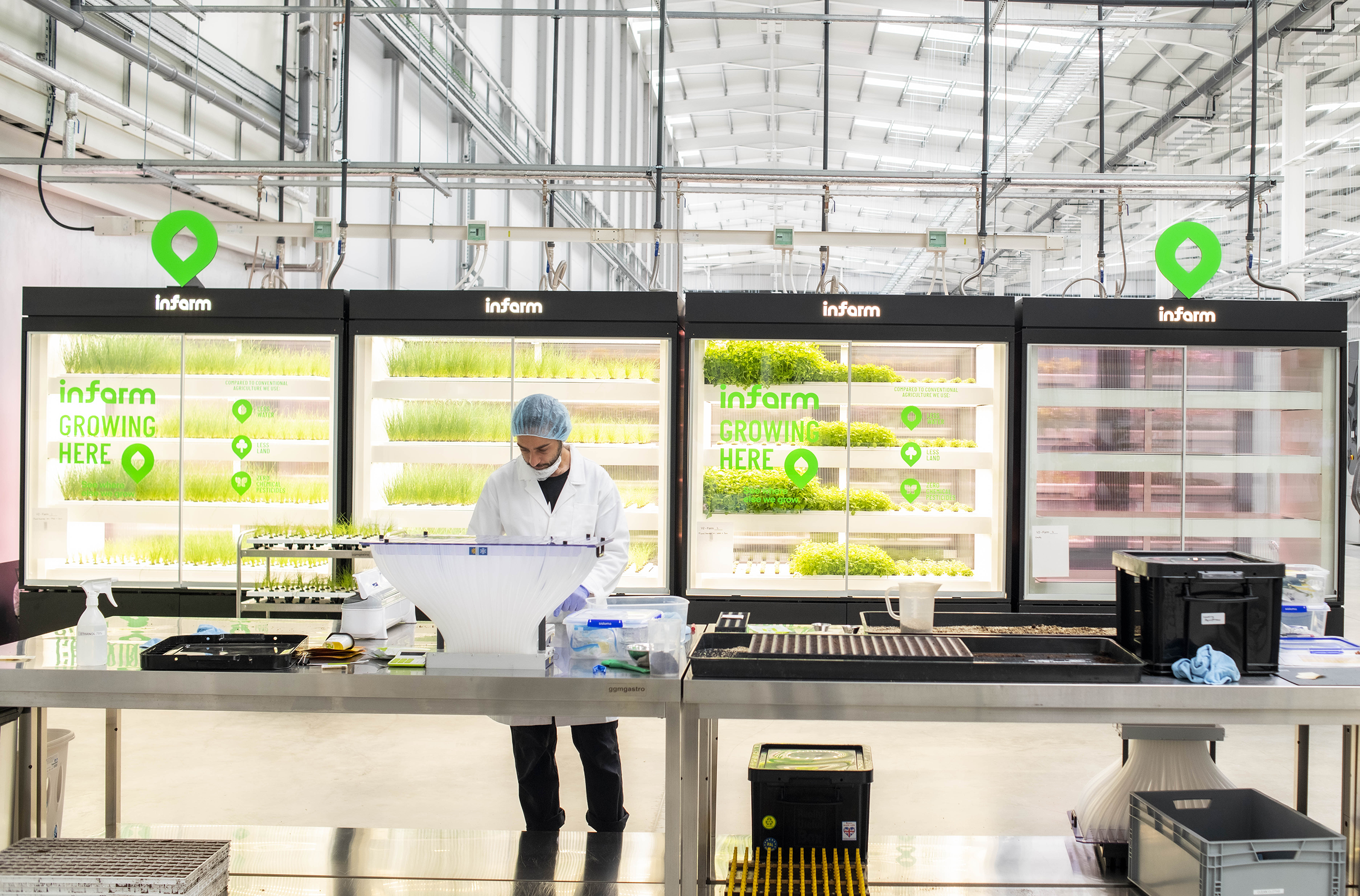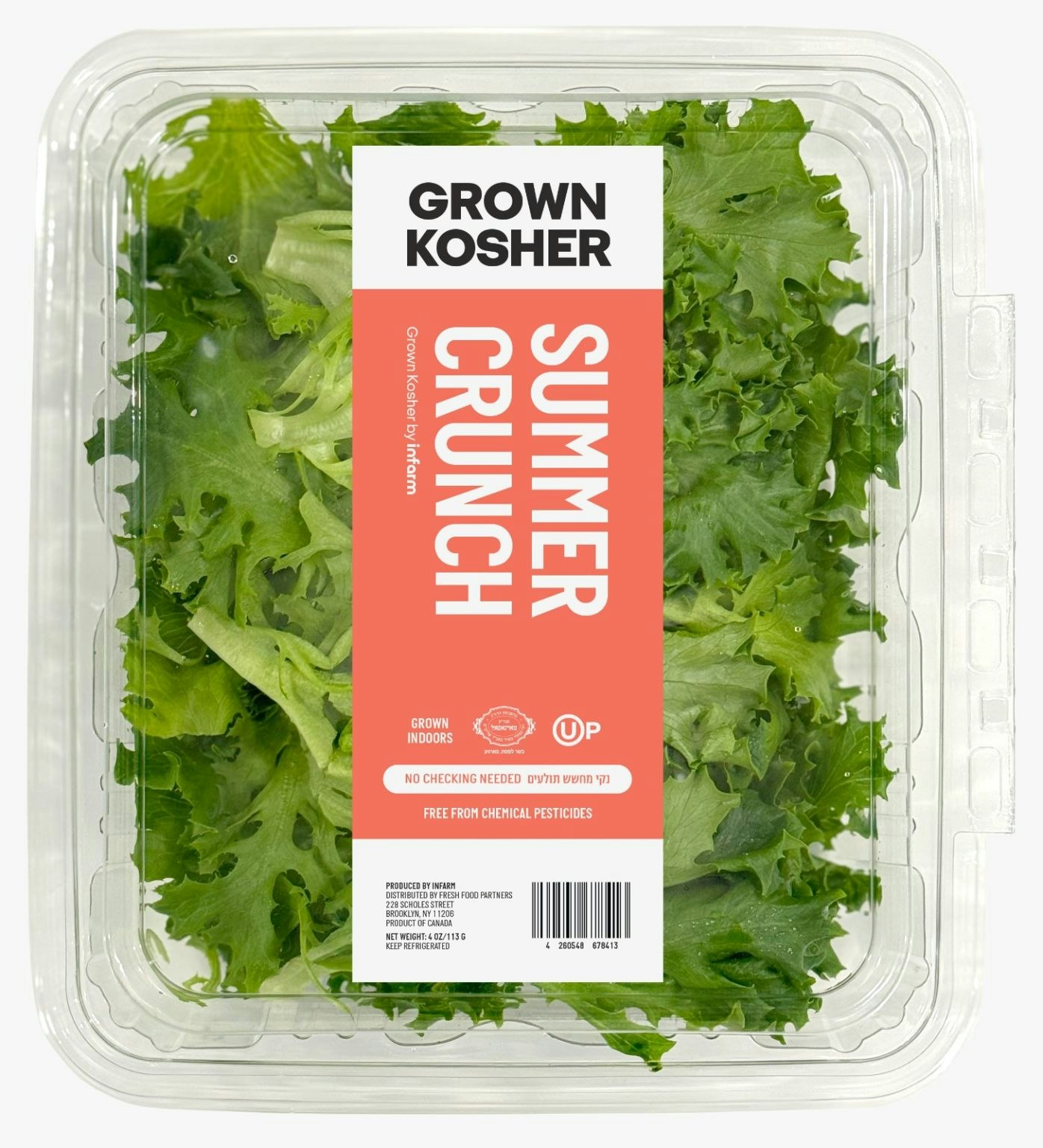Vertical farming company Infarm used to be one of the stars of the Berlin startup scene — boasting 1,400 farms and 1,000 employees across 10 countries worldwide, plus a $1bn price tag.
But by 2021, nine years into the startup’s journey, its fortunes began to turn. A combination of operational inefficiency, rising energy prices as a result of Russia’s war on Ukraine and an inability to compete with traditional growers made it hard for the company to turn a profit. It was declared insolvent in its major European markets, laid off staff and, eventually, disappeared from public view.
But Infarm is back: with a new company entity, a different mission and a (slightly) different name. The startup's dream of assuring food security for the masses looks to be back on the table — though Infarm’s past lives continue to haunt it, with a recent court case naming the old entity.
Infarm declined to comment on the majority of this piece.
€1 for Infarm’s IP
In September 2023, Infarm’s founders — Guy Galonska, Erez Galonska and Osnat Michaeli — registered a new company in the UK, initially called May Acquisitions. That name was later changed to Infarm Technologies Limited, according to Companies House filings.
Administration documents for the original Infarm — Indoor Urban Farming Gmbh — show May Acquisitions purchased business records, contracts, intellectual property, plant and machinery and sales information from the old entity in December 2023. It cost just over €40m — almost entirely for the plant and machinery: InFarm’s IP — which includes its plant-growing technology systems — was worth just €1 in the transaction.

The new Infarm bought the assets from the old Infarm by transferring a €40m loan given to the old Infarm by TriplePoint Private Venture Credit, a US lender, to the new Infarm, administration documents show.
The first Infarm received $473m investment from a roll call of top investors, from Atomico to Balderton and the Qatar Investment Authority. Company filings in the UK indicate that, alongside TriplePoint, the new Infarm received funds from Hanaco Ventures, an Israeli VC firm that also backed the first Infarm in 2020.
Hanaco Ventures owns 42.4% of the new Infarm; the cofounders own 46%; and TriplePoint owns the remainder, according to Companies House filings.
The court case
Despite coming on board with the new Infarm, a lead investor at Hanaco is still dealing with legal issues related to the old entity.
In May this year, it was reported in the Israeli press that a court case was filed against Pasha Romanovski — the cofounder and general partner of Hanaco. The case was brought by Omer Adam, a famous Israeli musician, and an investment manager, Ran Nussbaum, who reportedly allege that Romanovski got them to invest $750k in the first Infarm after he showed them a "presentation full of lies".
The new Infarm is not named as a defendant in the case. A spokesperson for Infarm said they were not aware of the investment made in the first Infarm or the lawsuit, and that it does not relate to the new entity, Infarm Technologies.
Romanovski has since stepped down from his role at Hanaco, but remains listed as a director of the new Infarm on Companies House.
Sifted has reached out to Adam, Nussbaum and Romanovski for comment. It is unclear what the current status of the case is.
Infarm 2.0: kosher salads from Canada
So, what’s the vision for the new Infarm?
The new company is set on producing various kinds of kosher (ie. insect-free) salad leaves.
Vertical farming could, theoretically, produce leafy greens that are guaranteed to not include any insects, because they’re grown in a sterile environment, unlike the open field.
A LinkedIn post from a person who worked on developing Infarm’s kosher brand — Grown Kosher — said in May that “the product already ran shelf-tests in limited markets (US and abroad).” Sifted has also found Grown Kosher products for sale in the US with Infarm’s name on the label, and a company insider confirmed that kosher products are the new focus. Infarm’s spring mix pictured below retails at $7.49 a box.

The new company has focused its operations exclusively in Toronto, Canada — according to a company insider, and confirmed by the “Product of Canada” label on the Grown Kosher products. Additionally, a paper in the Harvard Business Review confirms operations are based in Toronto.
The old Infarm announced it was opening a presence there in 2020, alongside its operations in numerous European countries including Germany, the UK, the Netherlands, Denmark and France. The administration documents show that the new Infarm purchased just one plant from the old Infarm: the Canadian facility.
Sifted understands that the Canada facility will target sales in the tri-state area of America — New York, Connecticut and New Jersey — an area home to one of the largest Jewish populations in the world. But Infarm faces competition: American vertical farming startup Bowery, which has raised $565m, is also working on kosher salad leaves.
Industry insiders say there is a significant amount of money in the kosher salad market: potentially opening a way for vertical farming to hit profitability, something it’s struggled to do given the high cost of energy needed for the production facilities.
Sifted understands that the new Infarm has 40 employees, most of whom are in Canada. Despite the focus on North America, the new company’s business is registered in the UK, where two of its cofounders live, according to Companies House.



